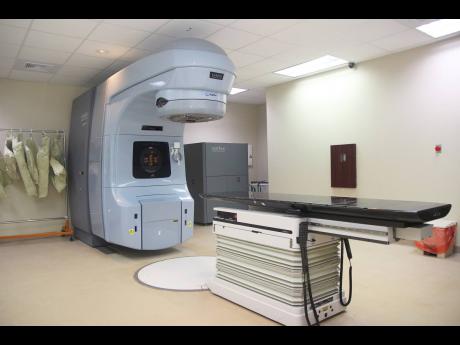Prostate cancer – A lesson to learn
Nearly 17 years ago, Gasset Randon suffered from a stroke. It was a life-threatening incident which encouraged him to get his check-ups done regularly, including doing his prostate-specific antigen (PSA) test.
Everything was going on well until two years ago when a PSA test that he expected to return normal, returned otherwise.
“He [urologist] discovered that my PSA was high and said I should go and do it over,” Randon said.
He did what his doctor advised, but unfortunately, the results were the same.
In response, his doctor said ,“No man! This nuh look good. You have to do a biopsy.”
But ‘belief kills and belief cures’, 67-year-old Randon said. “I didn’t take his word for it. Instead, I went to see another doctor [Dr Byfield]. When I went there, she did a digital rectal exam [DRE] and said she didn’t see anything. Just a little swelling of the prostate,” Randon said.
But she, too, recommended he repeat the PSA test. On reviewing the results, Dr Byfield confirmed his PSA was indeed high and suggested that he should do a prostate biopsy.
“I went and did the biopsy and when the results came back, it showed that one side was cancerous. She immediately started me on tablets (hormonal therapy),” Randon said.
But she explained to him that he should either do surgery or the radiation, which are the only curative treatments available.
Unable to make up his mind, he said, “I started taking the tablets but the tablets were expensive. One set of tablets for two weeks costs over $12,000. I couldn’t afford it,” Randon explained.
During this time, he explained that he met a good friend who works at the Cornwall Regional Hospital who said to him, “Why don’t you ask for a transfer to Dr Sharma?”
Dr Praveen Sharma is a consultant radiation oncologist at the Cornwall Regional Hospital.
Randon went to Dr. Byfield and requested the transfer and it was granted.
Further tests
Dr Sharma sent him to do further tests, like the bone scan and CT scan, for planning his treatment.
“He advised that I definitely needed either surgery or radiotherapy for any chances of cure,” Randon said.
Dr Sharma also informed him that a breakthrough in radiation treatment in Jamaica was on its way. At that time, the National Health Fund (NHF) was in the process of completing the single largest project partly funded and implemented by them.
The project was the newly opened National Cancer Treatment Centre at the Cornwall Regional Hospital, offering state-of-art radiation treatment using a Linear Accelerator (LINAC). But it would take over a year for the machine to arrive and the centre to be fully operational.
Randon said he wanted the best possible treatment for himself and thus decided to wait instead of starting radiotherapy on the Cobalt machine.
THE FIRST PATIENT
“He (Dr Sharma) switched the tablets and started giving me the hormone injections, once every three months. I could get this injection for free from the hospital pharmacy, so I kept on taking it,” Randon said.
Then suddenly one day, he recalled being home and receiving a call from Dr Sharma who asked “Can you be here by Thursday?” to which he responded in the affirmative.
That same Thursday, he went in and Dr Sharma spoke to him about the new Linear Accelerator, and after explaining how the treatment would work, offered to start him on radiotherapy on the new machine.
Now, Randon boasts of being the first patient to have been treated on the machine.
“So far, it has been good,” Randon said.
He went on to commend the staff at the National Cancer Treatment Centre, who he said has been very helpful and nice to him. He hopes to get rid of his disease and wish many more Jamaicans would be able to benefit from this much-needed treatment facility.
There are more than 15,000 men currently enrolled with the National Health Fund for prostate cancer, many of whom discovered the disease at a late stage.
The World Health Organization estimates that there will be 15 million new cases of prostate cancer worldwide by 2020.
In Jamaica, it is estimated that one in six males will be diagnosed with the disease.

